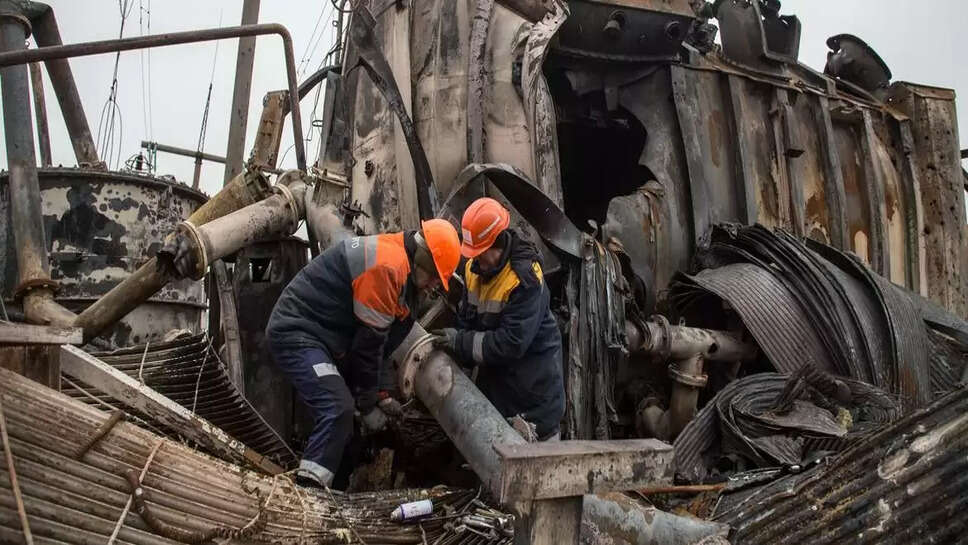EU Crackdown Sparks Legal Response from Rosneft-Backed Nayara

In a strongly worded statement, India-based Nayara Energy, partly owned by Russian oil giant Rosneft, has condemned the latest round of sanctions imposed by the European Union, calling them “arbitrary, unjustified, and legally questionable.” The company has declared that it is “actively exploring all legal options” to challenge the EU decision, as geopolitical tensions continue to cast long shadows over global energy markets.
Backdrop of the Sanctions
The European Union recently included Nayara Energy in its 14th sanctions package targeting Russian economic interests. The move is part of the EU’s ongoing response to Russia’s invasion of Ukraine, aiming to squeeze entities perceived to be indirectly funding or facilitating Russian state operations through commercial networks.
Nayara Energy, however, vehemently denies any role in supporting the Russian state, emphasizing its status as an independent Indian company operating under Indian jurisdiction, subject to Indian laws and global compliance norms.
Company’s Legal Stand
In a public statement issued through its official spokesperson, Nayara declared,
“We are an independent, privately operated Indian energy company, and the actions of the European Union undermine the fundamental principles of fair trade and sovereignty.”
The company stated that its inclusion in the sanctions list appears to be based solely on Rosneft’s minority stake of approximately 49.13%, without taking into account that the majority ownership and management lies with other global investors, including international funds like Trafigura (which exited earlier) and public financial institutions.
Nayara’s leadership confirmed that they are working with international legal teams to assess the implications and pursue remedial steps through international trade and arbitration channels.
Impact on Business Operations
While the sanctions do not directly prohibit Nayara’s operations within India, they could significantly hamper its global business activities, particularly in securing financing, insurance, and access to global markets. European companies might now be restricted from doing business with Nayara, potentially complicating import/export operations and future infrastructure projects.
Industry insiders suggest that Nayara’s growth trajectory, especially its plans to expand into petrochemical production and green energy, could be severely disrupted if the sanctions remain in place for an extended period.
Yet, the company is putting on a confident face.
“Our refinery continues to operate seamlessly, our supply chains remain intact, and we are fully compliant with all Indian regulatory frameworks,” Nayara's spokesperson asserted.
Geopolitical Undercurrents
The EU's move underscores the growing scrutiny on companies that have Russian linkages, even if those ties are passive or non-operational. With Rosneft being majority-owned by the Russian government and directly sanctioned in multiple jurisdictions, any company with Rosneft’s involvement is viewed with suspicion in European policy circles.
India has maintained a neutral stance in the Russia-Ukraine conflict and has continued importing discounted Russian crude via companies like Nayara and Indian Oil Corporation (IOC). This balancing act—safeguarding its strategic oil interests while maintaining global diplomacy—is now facing renewed stress with this latest development.
The sanctions also threaten to disrupt India’s domestic fuel supply chain, although both the Indian government and Nayara have downplayed this risk.
Indian Government’s Likely Reaction
Although the Indian government has yet to officially comment on the EU’s decision, sources in the Ministry of External Affairs suggest that the matter is being reviewed.
“This is an Indian entity operating under Indian law. Any external sanctions that impact Indian economic interests are always a matter of concern,” said a senior official on condition of anonymity.
It’s possible that New Delhi may seek clarifications or engage diplomatically with the EU, especially if the sanctions are found to negatively affect India’s energy security or foreign investment climate.
Energy Sector Implications
Nayara Energy owns one of India’s largest refineries in Vadinar, Gujarat, with a processing capacity of 20 million metric tonnes per annum. It also operates a fast-growing retail network of fuel stations across the country.
With India being one of the world’s largest energy importers, any disruption to refinery operations or crude sourcing has the potential to impact fuel prices domestically.
Financial analysts are watching the situation closely.
“The EU’s actions may set a precedent for similar moves against other companies with partial Russian ownership. This could lead to market volatility in Asia,” noted a senior analyst at a Mumbai-based brokerage firm.
Global Oil Dynamics
The global oil market is already on edge, with Middle East tensions, production cuts by OPEC+, and Western sanctions on Russia causing price fluctuations and uncertainty in supply chains. Nayara’s predicament adds another layer to this complex landscape.
Furthermore, Rosneft's indirect presence in Asian markets via joint ventures like Nayara was viewed as a strategic workaround to Western sanctions. The EU’s targeting of Nayara signals an intent to close these backdoors, potentially triggering further retaliation from non-aligned economies.
Outlook and Future Moves
For now, Nayara Energy is focused on stabilizing operations, maintaining stakeholder confidence, and preparing for a legal battle. The company has indicated that it is in dialogue with Indian regulators and global financial partners to ensure business continuity.
“We will defend our rights vigorously and will not allow politically motivated decisions to damage our company’s reputation or future,” the company reiterated.
How this conflict unfolds could become a test case for corporate sovereignty and legal recourse in a sanctions-driven world economy.
The sanctions on Nayara Energy are a critical inflection point not only for the company but for broader Indo-European trade and global energy security. As legal and diplomatic channels activate, this standoff could evolve into a wider discussion about the legitimacy and reach of economic sanctions in an interdependent global market.
.jpg)